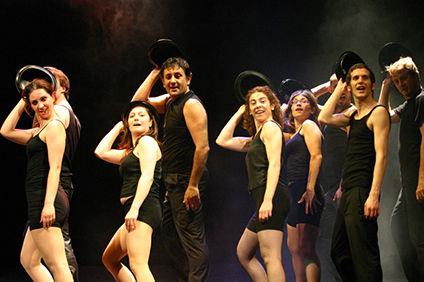 Recently, I traded days filled with computers, training, social media and webinars for toys, diapers, naptime shenanigans and the focus demanded by 2 very small children.
Recently, I traded days filled with computers, training, social media and webinars for toys, diapers, naptime shenanigans and the focus demanded by 2 very small children.
I’ll admit, the first day was frenetic and I wondered if I would still be sane at the end of the week. It’s been quite a few years since I had full-time responsibility for little people.
Thankfully, I noticed it got easier every day. It had nothing to do with the demand of the job changing but had everything to do with me finding a rhythm.
Learned Rhythms – Finding the Beat of a New Task
How many times have you started a new job and thought it was easy? (All the new parents are rolling their eyes.) Regardless of the job description, new duties can throw you off. Even when it involves tasks you think are “beneath” you, it can be surprisingly stressful. (Ever watched Undercover Boss? It’s interesting to see the CEO struggling with the minimum wage assignments.)
Mentally, it’s a bit like traveling into a different time zone and suffering jet lag. The landscape of your day has shifted and it can leave you feeling discombobulated.
The mental stress affects your body (always does), causing uncharacteristic fatigue.
Pushing through is the only answer. When you learned to dance, it’s highly likely you felt uncomfortable – maybe even spastic. Practice time allows you to get in synch with the music. The more you do it, the better you get. Sure – some people have a natural gift and become adept quickly. But everyone can develop their own style.
 There’s a phenomenon called synaptic pruning that explains this process well. Synapses are somewhat like electrical connections between the neurons in your brain. The basic concept is that repeated events create an abundance of connections (called neurogenesis) to create a specific and mature circuitry in your brain.
There’s a phenomenon called synaptic pruning that explains this process well. Synapses are somewhat like electrical connections between the neurons in your brain. The basic concept is that repeated events create an abundance of connections (called neurogenesis) to create a specific and mature circuitry in your brain.
James Clear applies this concept in a post on Habit Stacking. He writes, “if you practice playing the piano for 10 years, then your brain will strengthen the connections between those musical neurons. The more you play, the stronger the connections become. Not only that, the connections become faster and more efficient each time you practice. As your brain builds stronger and faster connections between neurons, you can express your skills with more ease and expertise. It is a biological change that leads to skill development. Meanwhile, someone else who has never played the piano is not strengthening those connections in their brain. As a result, the brain prunes away those unused connections and allocates energy toward building connections for other life skills.”
Our brain is fantastically intricate, complex and capable.
When you undertake something new – whether it’s learning a new skill, caring for a newborn or navigating uncharted waters as the head of the HR department – there will be a learning curve.
Give yourself time to hit your stride. Your assignment is a long- distance run rather than a sprint. Pacing, stamina and persistence will serve you well as you develop the skills needed.
You have yet to see the full manifestation of the capabilities that reside within you. What will it look like when your potential is expressed in ways you’ve only dreamed of?
One of the characteristics of the happiest people on earth is the ability to perceive change as a challenge rather than a negative stress. You can do more than you think. Know that the mental toughness that comes with pressing through the hard days will serve you throughout your life.
Don’t wait until the finish line to do a victory dance. Find the rhythm of the beat and move those feet. You’ve got this.

